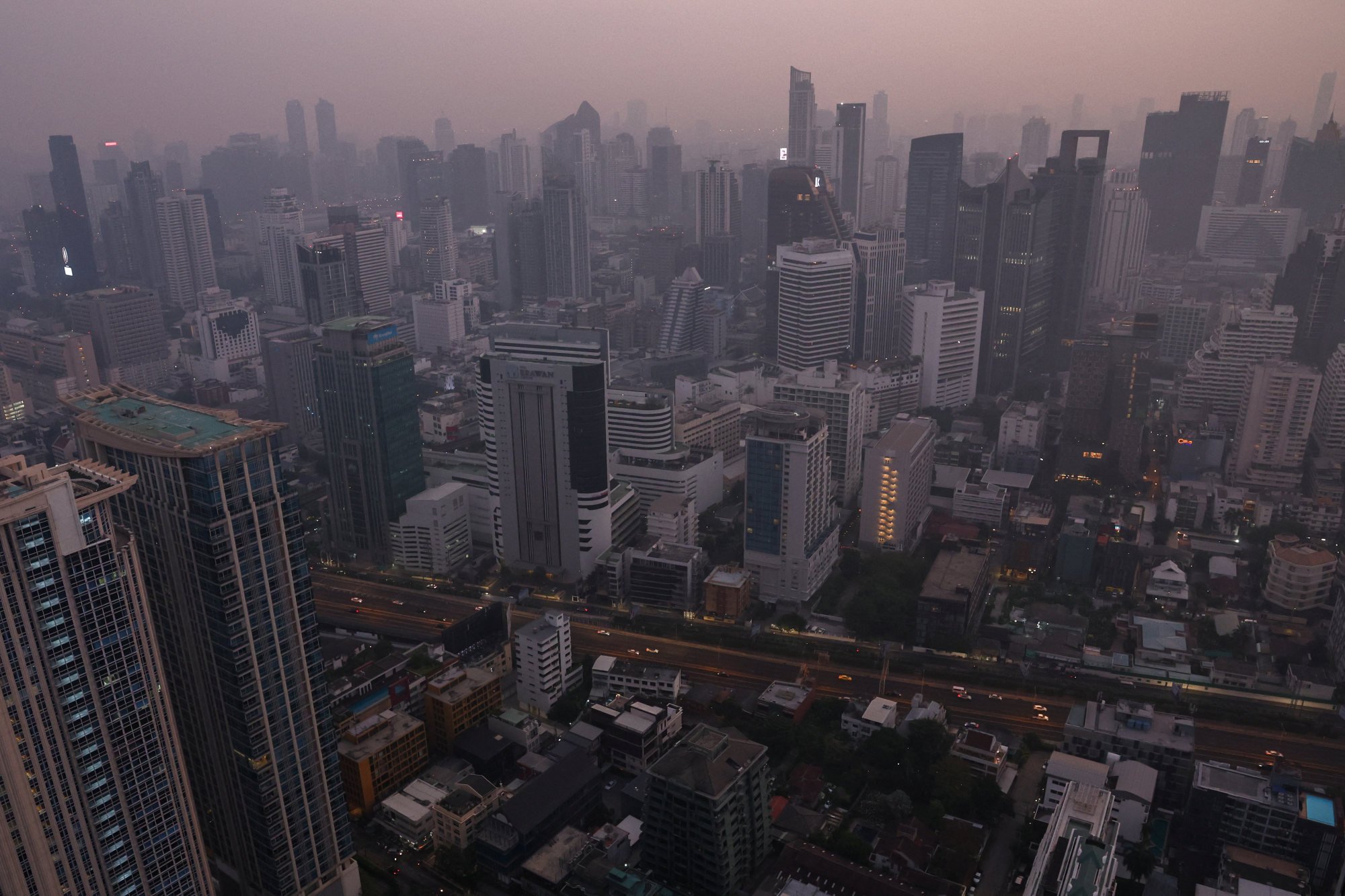Bangkok city employees have been told to work from home to avoid harmful air pollution, as a layer of noxious haze blanketed the Thai capital on Thursday.
City authorities asked for cooperation from employers to help workers in the city of some 11 million people avoid the pollution, which is expected to last into Friday.
The air monitoring website IQAir ranked Bangkok among the 10 most polluted cities in the world on Thursday morning.
Levels of the most dangerous PM2.5 particles – so tiny they can enter the bloodstream – were more than 15 times the World Health Organization’s annual guideline, according to IQAir.

“It’s getting worse because there’s too much smoke haze,” said motorcycle taxi driver Kornpong Poprakun, 57. “I feel itchy eyes because there’s a lot of dust, and breathing isn’t easy.”
Bangkok governor Chadchart Sittipunt said late Wednesday that all city employees would work from home on Thursday and Friday.
“I would like to ask for cooperation from the BMA network of about 151 companies and organisations, both government offices and the private sector,” he said in a statement, adding that more than 60,000 people were affected.
Is China reaching the limits of its air pollution control efforts?
Is China reaching the limits of its air pollution control efforts?
BMA is an abbreviation for the Bangkok Metropolitan Administration.
Chadchart said at least 20 of Bangkok’s 50 districts were expected to have unhealthy levels of PM2.5 particles, and the problem would linger because of calm weather.
Air quality in Thailand regularly plummets in the early months of the year as smoke from farmers burning stubble in the fields adds to industrial emissions and vehicle exhaust fumes.
Bangkok and the northern city of Chiang Mai ranked among the most polluted cities in the world on a number of days last year.
A public health crisis is brewing over the problem, with at least two million people in Thailand needing medical treatment because of pollution in 2023.
The government of Prime Minister Srettha Thavisin, which took over in August, has promised to make tackling air pollution a “national agenda”, and a draft Clean Air Act was endorsed by his cabinet last month.
But the problem persists, and a court in Chiang Mai last month ordered the government to come up with an urgent plan to tackle air pollution within 90 days.
Additional reporting by Reuters

